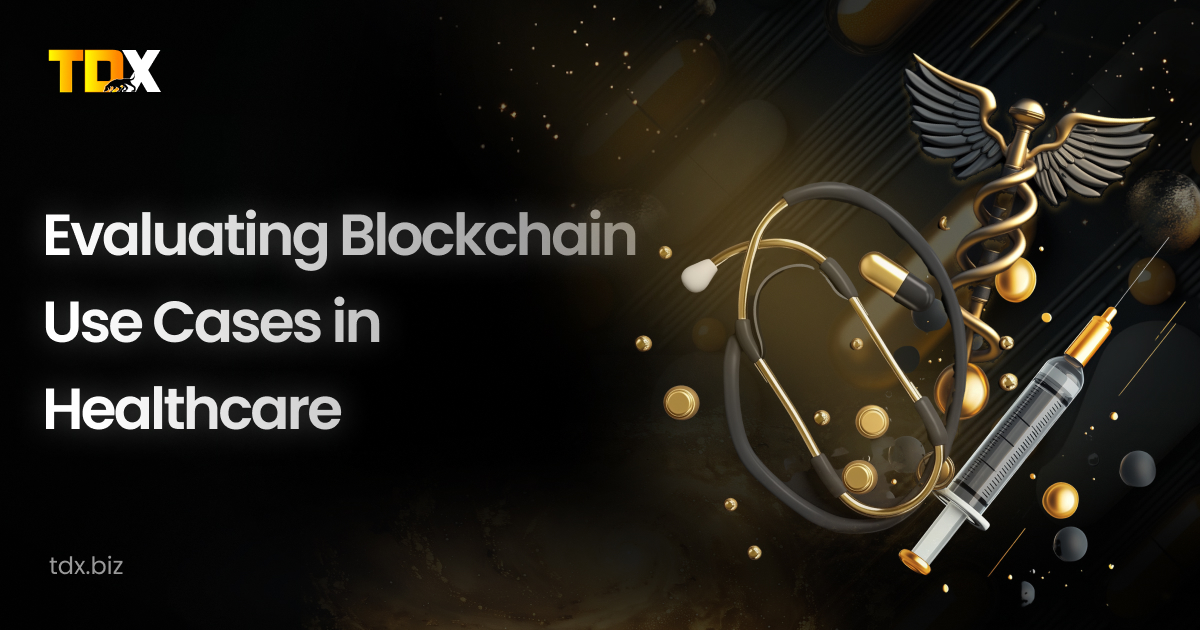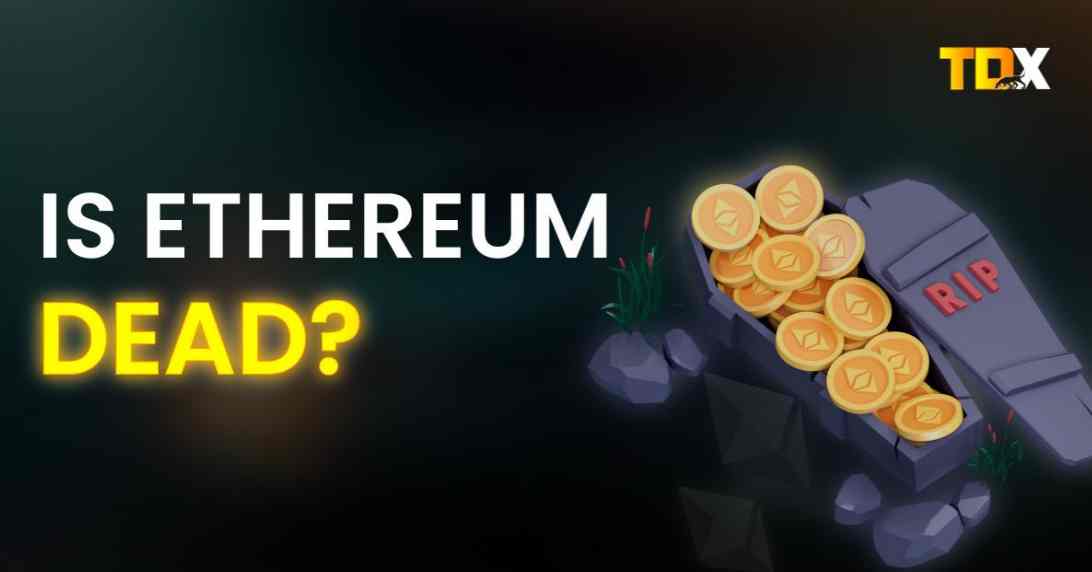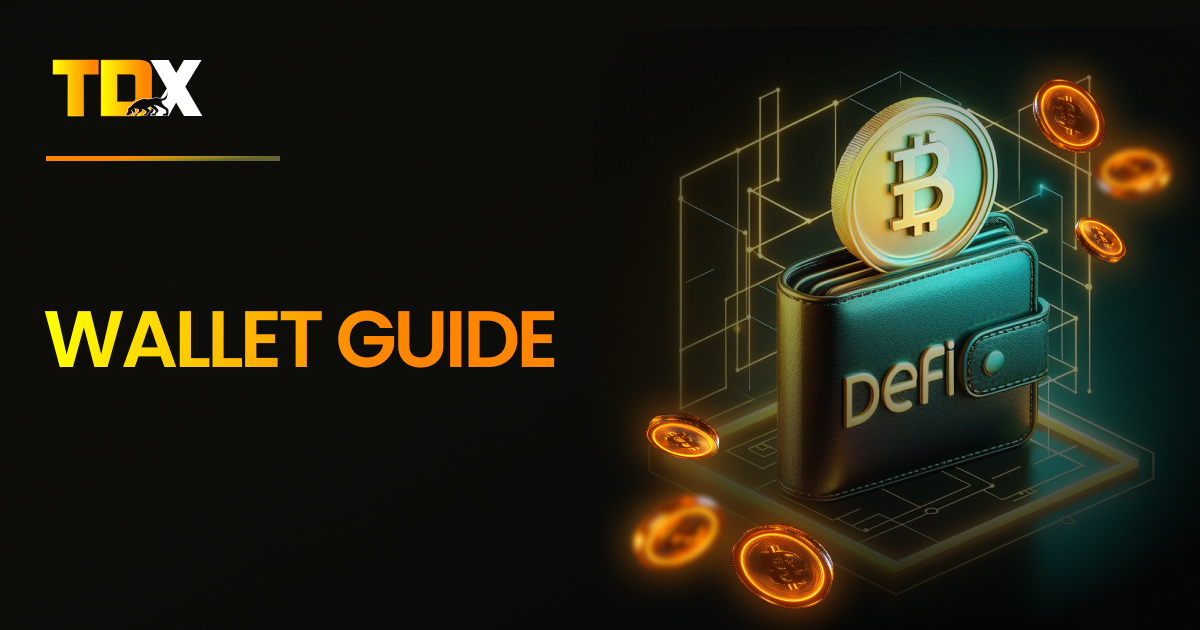 Back to blog
Back to blog


Blockchain Use Cases in Healthcare
In recent years, blockchain technology has emerged as a transformative force within the healthcare industry, setting the stage for a new era in patient data management and healthcare services.
This article delves into the application of blockchain in healthcare, starting with an exploration of the critical challenges faced by healthcare providers, such as securing patient data, managing medical records, and enhancing data exchange.
We will uncover how blockchain solutions offer innovative strategies for improving data security and streamlining healthcare data management.
By examining five specific use cases, we highlight the significant impacts of blockchain-based systems, from improving patient care and health outcomes to optimizing pharmaceutical supply chain management.
Finally, we will look ahead to the future of blockchain in healthcare, considering its potential to revolutionize healthcare organizations and systems worldwide.
Through this comprehensive analysis, we aim to demonstrate how blockchain technology is set to redefine the healthcare landscape, offering enhanced patient safety and more efficient healthcare operations. Read on to discover the profound ways blockchain is shaping the future of health care!

Application of Blockchain in Healthcare
Blockchain technology is revolutionizing the healthcare industry by addressing critical challenges such as data security, patient data management, and supply chain inefficiencies. As of 2024, blockchain’s distributed ledger technology is being increasingly adopted to enhance the integrity and security of medical records, streamline healthcare data management, and improve patient care.
One of the primary applications of blockchain in healthcare is securing patient data. With the rise in healthcare data breaches, blockchain offers a decentralized and incorruptible system for storing sensitive medical information. Companies like Medicalchain are utilizing blockchain to create tamper-proof electronic health records (EHRs), ensuring that patient data remains secure and accessible only to authorized parties.
In the realm of pharmaceutical supply chain management, blockchain is providing unprecedented transparency and traceability. Chronicled has developed blockchain networks that ensure the integrity of the medicine supply chain, from production to delivery, reducing the risk of counterfeit drugs entering the market.
Blockchain is also enhancing clinical trials by ensuring the integrity of data collected during the research process. For instance, Novo Nordisk has implemented blockchain technology in its Electronic Patient Interactive Device (ePID) to secure patient data during clinical trials, thereby maintaining the accuracy and reliability of trial results.
Furthermore, blockchain facilitates efficient data sharing among healthcare providers, improving patient outcomes and care coordination. Akiri operates a network-as-a-service that enables secure and real-time data exchange, ensuring that healthcare professionals have access to up-to-date patient information when needed.

The Problems with Healthcare
The healthcare industry in 2024 is grappling with a multitude of challenges that threaten the quality of patient care and the efficiency of healthcare systems. One of the most pressing issues is cybersecurity. With healthcare providers storing vast amounts of sensitive patient data, the industry has become a prime target for cyberattacks.
According to NetSuite, 60% of healthcare organizations have faced ransomware attacks in the past year, disrupting patient care and costing millions in mitigation efforts.
Another significant challenge is the inefficiency in healthcare data management. The industry produces enormous volumes of data daily, yet much of it remains unstructured and difficult to analyze.
This inefficiency hampers the ability of healthcare providers to make informed decisions and improve patient outcomes. The need for better data management systems is critical to transforming raw data into actionable insights.
The healthcare sector also faces growing competition from non-traditional healthcare providers. Retail giants like Amazon and CVS Health are entering the healthcare market. They offer more convenient and often less expensive care options. This shift is forcing traditional healthcare institutions to rethink their service delivery models to remain competitive.
Moreover, the transition to value-based care presents another layer of complexity. Healthcare organizations are required to demonstrate the quality of care through extensive documentation, which adds to the administrative burden and diverts resources away from direct patient care.
What else? The shortage of healthcare professionals, particularly in rural areas, exacerbates these challenges. With a projected shortage of up to 124,000 physicians by 2034, according to the Association of American Medical Colleges, healthcare systems are struggling to meet patient demand, leading to longer wait times and potentially poorer health outcomes.
Addressing these challenges requires a multifaceted approach, including the adoption of advanced technologies like blockchain to secure patient data and improve data sharing, as well as strategic partnerships and policy reforms to enhance healthcare delivery and accessibility.

The Blockchain Solutions
Blockchain technology is increasingly recognized as a transformative force in the healthcare industry, offering robust solutions to persistent challenges such as data security, inefficient data management, and supply chain transparency. As of September 2024, blockchain in healthcare is paving the way for more secure, efficient, and patient-centric healthcare systems.
One of the primary benefits of blockchain technology is its ability to secure patient data through its decentralized and immutable nature. With cyberattacks on the rise, healthcare providers are leveraging blockchain to protect sensitive medical data from unauthorized access and breaches.
Guardtime, for instance, has implemented blockchain systems to enhance data security for healthcare organizations, ensuring patient information remains confidential and tamper-proof.
Blockchain also facilitates seamless data sharing and management across healthcare providers. By creating a single, verifiable source of truth for patient medical records, blockchain enhances interoperability and allows for more efficient data exchange.
This capability is crucial for improving patient care as it ensures that healthcare professionals have timely access to accurate health records, reducing the risk of medical errors. Akiri exemplifies this by providing a blockchain-based network that enables secure and real-time data sharing, thereby optimizing healthcare services and patient outcomes.
In the realm of supply chain management, blockchain offers unprecedented transparency and traceability. The pharmaceutical supply chain, often plagued by inefficiencies and the risk of counterfeit drugs, benefits immensely from blockchain’s ability to create a detailed and immutable ledger of every transaction.
Companies like Chronicled utilize blockchain technology to ensure the integrity of the medicine supply chain, from production to delivery, thereby safeguarding patient safety and ensuring the authenticity of medical devices and pharmaceuticals.
Blockchain’s smart contracts are another innovative solution, automating processes such as patient consent and clinical trial management. These contracts can streamline administrative workflows, reduce costs, and improve compliance with regulatory requirements, facilitating a more efficient healthcare system.
As we all know, blockchain technology continues to evolve. So it is expected to drive further innovation in the healthcare sector, addressing critical data management challenges and enhancing the overall quality of care.
By implementing blockchain solutions, healthcare organizations can not only protect critical data but also improve patient care and operational efficiency, ultimately leading to better health outcomes and a more resilient healthcare system.

5 Blockchain Healthcare Use Cases
Blockchain’s applications in the healthcare industry are becoming increasingly impactful, offering solutions for data security, patient data management, and supply chain transparency. Here are five significant use cases of blockchain in healthcare now:
Securing Patient Data
Protecting sensitive patient information is a top priority for healthcare providers. Blockchain offers a decentralized and immutable ledger that enhances data security and privacy. Guardtime is a leading example, leveraging blockchain to secure electronic medical records (EMRs) and ensure that patient data is accessible only to authorized users, thereby reducing the risk of breaches and unauthorized access.
Patient Data Management and Access
Blockchain technology is revolutionizing patient data management by providing a secure and efficient means of storing and accessing medical records. MedRec is utilizing blockchain to create a decentralized system that allows patients to have direct control over their health records.
This system grants patients the ability to grant healthcare providers access to their data as needed, promoting better care coordination and ensuring that medical information is readily available and secure.
Streamlining Pharmaceutical Supply Chains
The pharmaceutical supply chain is riddled with inefficiencies and vulnerabilities to counterfeit drugs. Blockchain provides a robust solution by enabling precise tracking of pharmaceuticals from production to distribution.
Chronicled utilizes blockchain technology to maintain an immutable record of transactions, ensuring that all drugs are authentic and safe for consumption, thereby safeguarding patient safety and improving supply chain management.
Enhancing Data Sharing and Interoperability
Blockchain facilitates seamless data exchange between healthcare providers, enhancing interoperability and improving patient care.
Akiri has developed a blockchain-based network that allows for secure data sharing in real-time, ensuring that healthcare professionals have access to up-to-date patient information, which is critical for making informed care decisions and improving health outcomes.
Managing Genomic Data
Blockchain is revolutionizing the way genomic data is stored and shared. Nebula Genomics uses blockchain technology to provide a secure platform for storing and sharing genomic data.
By eliminating intermediaries and reducing costs, Nebula Genomics enables individuals to retain control over their genetic information and facilitates secure data sharing with researchers and healthcare providers, thereby advancing personalized medicine and genomic research.
These use cases highlight the transformative potential of blockchain technology in the healthcare sector. By improving data security, enhancing transparency, and optimizing processes, blockchain is poised to drive significant advancements in healthcare management and patient care outcomes.
As the technology continues to evolve, its applications are expected to expand, offering even greater benefits to healthcare organizations worldwide.

The Future of Blockchain in the Healthcare Industry
The integration of blockchain technology within the healthcare industry is set to revolutionize how healthcare data is managed, shared, and secured. This transformation is driven by the need for enhanced data security, transparency, and efficiency in managing sensitive health data and medical records.
One of the most promising future applications is the widespread adoption of blockchain-based electronic health records (EHRs). These systems are expected to provide patients with greater control over their health information, allowing them to grant or revoke access to their records seamlessly.
Healthcare providers will benefit from improved data-sharing capabilities, leading to more coordinated and efficient patient care. For example, Estonia has already implemented a blockchain system to manage its citizens’ health records, demonstrating the potential for improved data integrity and patient consent management.
The pharmaceutical supply chain is another area poised for significant improvements through blockchain technology. By implementing blockchain solutions, healthcare organizations can ensure the authenticity and traceability of medical products from manufacture to delivery.

This will not only combat counterfeit drugs but also enhance the transparency and efficiency of supply chain management. IBM’s collaboration with KPMG, Merck, and Walmart in the FDA’s pilot program on drug traceability is an example of how these innovations are being tested and refined.
Smart contracts, a feature of blockchain technology, are expected to streamline administrative processes and reduce costs within the healthcare system.
These self-executing contracts can automate tasks such as insurance claims processing and patient billing, minimizing human error and fraud. Companies like Chronicled are at the forefront, using blockchain to automate compliance and reduce inefficiencies in the healthcare sector.
Blockchain’s role in healthcare research is also expanding, with secure data exchange platforms facilitating collaboration among researchers and healthcare institutions.
These platforms ensure data availability while maintaining the privacy and security of patient information. This capability is crucial for advancing medical research and developing new treatments.
In terms of patient monitoring and care, blockchain technology supports the integration of remote monitoring devices and IoT medical equipment. This integration allows for real-time data sharing and analysis, enhancing patient care and health outcomes.
As more healthcare systems adopt blockchain technology, the potential for improved healthcare services and patient safety becomes increasingly evident.
Overall, the future of blockchain in the healthcare industry lies in its ability to provide a secure, transparent, and efficient framework for managing critical healthcare data. As the technology continues to evolve, it is expected to offer even greater benefits, driving innovation and improving health systems worldwide.

Bottomline
In conclusion, we can say that the integration of blockchain technology into the healthcare industry is reshaping how healthcare systems function, offering secure and efficient management of critical data.
With its capacity to enhance data security, manage supply chains, and ensure seamless data sharing, blockchain provides healthcare providers and organizations with a transformative toolkit. These advancements are vital for handling electronic medical records, patient data, and healthcare records securely.
Countries such as Estonia are at the forefront, implementing blockchain-based health record systems that ensure robust patient consent management and improved data accessibility.
In the pharmaceutical supply chain, blockchain significantly reduces risks associated with counterfeit drugs, while improving transparency and traceability of medical supply chains. The FDA’s work with IBM exemplifies how blockchain can revolutionize pharmaceutical supply chain management.
Smart contracts and distributed ledger technology are also revolutionizing healthcare management by automating billing and insurance claims processes, which reduces errors and lowers costs.
Companies like Chronicled are pioneering these efforts, showcasing the practical benefits of blockchain in healthcare.
Blockchain’s role in healthcare research, patient care, and remote monitoring is expanding, providing a secure framework for data management. This not only enhances current healthcare services but also lays the groundwork for future innovations in patient safety, healthcare data management, and overall health outcomes.
As healthcare stakeholders integrate these blockchain solutions, the industry is set for substantial advancements, leading to more efficient and effective healthcare systems globally.
40,000 readers 🚀 are getting insights with our media
 Read on Medium
Read on Medium 

Article
“Is Ethereum dead?” This is a trending argument that is appearing in various crypto communities and media. Which is not…


Guide
Welcome to the beginner’s guide on Trust Wallet, MetaMask, and Exodus—three most common cryptocurrency wallets for managing your crypto assets….


Article
When Venezuela’s inflation hit 189.8% in 2023 [Central Bank of Venezuela, 2023], Maria’s life savings of 200 million bolivars (enough…


Article
For generations, Indians have trusted one investment: fixed deposits (FDs). If you walk into any Indian household, chances are someone…


